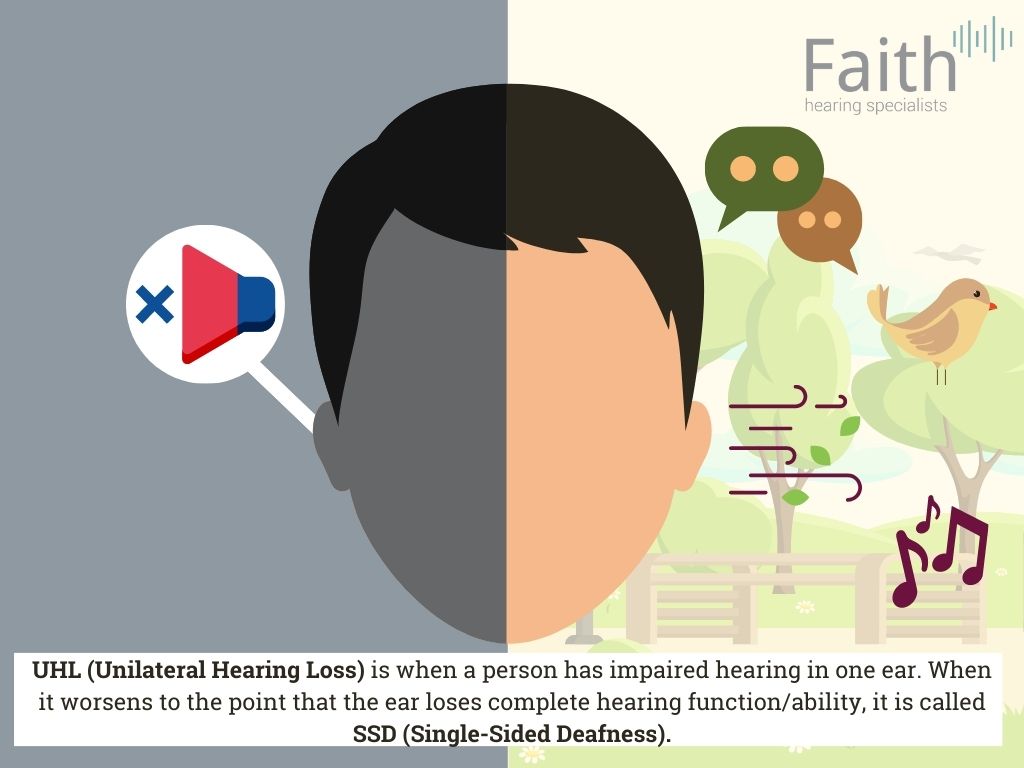Unilateral hearing loss can happen due to an impulse sudden noise on one side of the head a blow to the ear or even a q tip being pushed in too far

Unilateral Hearing Loss: Causes and Effects

Unilateral hearing loss, also known as single-sided deafness (SSD), is a condition where an individual experiences complete or partial hearing loss in one ear while the other ear remains unaffected. This condition can happen due to various reasons such as an impulse or sudden noise on one side of the head, a blow to the ear, or even a Q-tip being pushed in too far.
Impulse Noise and Unilateral Hearing Loss
Impulse noise, also called sudden or impact noise, refers to a momentary burst of loud sound that can cause significant damage to the delicate structures of the ear. For instance, being exposed to a loud explosion, firearm discharge, or a high-intensity firecracker can lead to immediate and permanent hearing loss in one ear. The abruptness and intensity of the noise overwhelm the ear’s ability to protect itself, resulting in irreversible damage to the auditory system.

Trauma and Unilateral Hearing Loss
Trauma to the ear, such as a severe blow or injury, can also cause unilateral hearing loss. The impact can damage the delicate structures within the ear, including the cochlea, middle ear, or even the auditory nerve. In these cases, the hearing loss is typically sudden and may or may not be accompanied by pain or bleeding from the affected ear. Immediate medical attention is crucial to assess and treat the injury to minimize the long-term consequences on hearing ability.
Q-Tips and Unilateral Hearing Loss
Believe it or not, improper use of Q-tips can lead to unilateral hearing loss. Many individuals use Q-tips for cleaning their ears, unaware that they risk pushing the wax deeper into the ear canal, causing a blockage. In some cases, excessive force or improper handling of Q-tips can result in injury to the ear canal or eardrum. The injury can lead to temporary or permanent hearing loss, especially if the damage extends to the delicate structures responsible for transmitting sound signals.
To prevent unilateral hearing loss caused by Q-tip usage, it is important to note that ears are self-cleaning organs. The ear canal has a natural mechanism that moves earwax and debris towards the outer part of the ear, where it can be safely wiped away. Inserting Q-tips or any other objects into the ear canal should be avoided to protect the integrity of the ear and prevent unnecessary damage.
In conclusion, unilateral hearing loss can be the result of various incidents, including impulse noises, trauma to the ear, and improper use of Q-tips. The sudden or gradual loss of hearing in one ear can significantly impact an individual’s quality of life, affecting their ability to localize sounds, engage in conversations, and immerse themselves in their surroundings. If you or someone you know experiences unilateral hearing loss, it is essential to seek medical attention to diagnose the cause accurately and explore suitable treatment options.
Tags
Share
Related Posts
Quick Links
Legal Stuff

